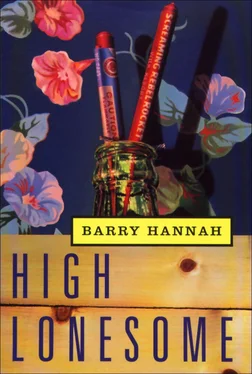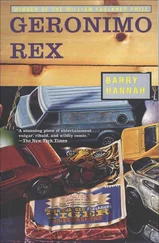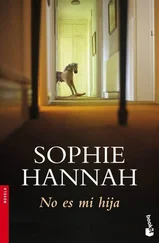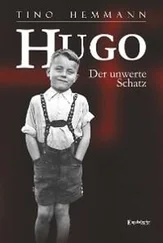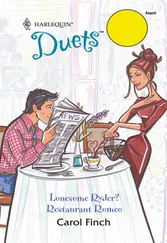Long into the afternoon they awoke with no shame and only the shyness of new dogs in a palace and then an abashed hunger for the whole ritual again set like a graven image in all their dreams. The boy had been told things and he felt very elegant, a crowned orphan now orphan no more. Bernadette, touched in all places, felt dear and coveted. All meanness had been driven from Tuck and he was blank in an ecstasy of separate parts like a creature torn to bits at the edge of a sea. Around them were their scattered clothes, the confetti of delirium. They embraced and were suspended in a bulb of void delicate as a drop of water.
Sunballs came around the store since it was closed and he wore a large knife on his belt in a scabbard with fringe on it and boots in white leather and high to the knee, which he had without quite knowing their use rescued out of a country lane near the bridge, the jetsam of a large majorette seduced in a car he had been watching all night. At the feet he looked blindingly clean as in a lodge ceremony. He walked quickly as if appointed and late. He looked in one window of the blue house, holding the sill, before he came to the second and beheld them all naked gathering and ungathering in languor, unconscious in their innocence. He watched a goodly while, his hands formally at his side, bewitched like a pole-axed angel. Then he commenced rutting on the scabbard of his knife grabbed desperately to his loins but immediately also to call out scolding as somebody who had walked up on murder.
Cursed and stunned Tuck and Bernadette snatched the covering but Swanly sat peering at the fiend outside until overcome by grief and then nausea. His nudity was then like one dead, cut down from joy. Still, he was too handsome, and Sunballs could not quit his watching while Swanly retched himself sore.
He might well be dying, thought Sunballs, and this fascinated him, these last heavings of beauty. He began to shake and squalled even louder. There was such a clamor from the two adults he awoke to himself and hastened back to the road and into the eroded ditch unbraked until he reached his burrow. Under his bluff the river fled deep and black with a sheen of new tar, and the hermit emerged once on his filthy terrace to stand over it in conversation with his erection, his puny calves in the white boots.
The boys labored with oaths down the bedrocks of the river. All was wretched and foul since waking under the peach wine, which they now condemned, angry at daylight itself. Only Bean was ready to the task. They went through a bend in silence and approached water with no beach. They paused for a while then flung in and waded cold to their chests. Bean, the only one armed, carried the cavalry shotgun above his head.
I claim this land for the Queen of Spain, Bean said. God for a hermit to shoot. My kingdom for a hermit. Then he went underwater but the shotgun stayed up and dry, waggled about.
When he came up he saw the hermit leering down from his porch on the bluff. Bean, choked and bellicose, thought he heard Sunballs laughing at him. He levered in a round and without hesitation would have shot the man out of his white boots had this person not been snatched backwards by Tuck. All of them saw the arm come around his neck and the female boots striding backwards in air, then dust in vacant air, the top of a rust hut behind it. A stuffed holler went off the bluff and scattered down the pebble easements westerly and into the cypresses on either side. Then there was silence.
He was grabbed by something, said Walthall, something just took Sunballs away.
By hell, I thought he was shot before I pulled the trigger, swore Bean. Bean had horrified himself. The horse gun in his hand was loathsome.
Don’t hit me no more in the eye! a voice cried from above.
Then there were shouts from both men and much stomping on the terrace.
Tuck shrieked out, his voice like a great bird driving past. They heard then the hysterical voice of Swanly baying like a woman. The boys were spooked but drawn. They went to finding a path upwards even through the wine sickness.
Swanly, he ain’t right and that’s him, said Pal.
Well somebody’s either humping or killing somebody.
We charging up there like we know what to do about it.
I could’ve killed him, said Bean, dazed still. Damn you Swanly. For you, damn you.
Then they were up the fifty feet or more and lost in cane through which they heard groans and sobs. They turned to this and crashed through and to the man they were afraid. At the edge of the brake, they drew directly upon a bin buried three-quarters in the top of the bluff, this house once a duckblind. In front of it from the beaten clay porch they heard sounds and they pressed around to them like harried pilgrims anxious for bad tidings. They saw the river below open up in a wide bend deep and strong through a passage of reigning boulders on either side and then just beside them where they had almost overwalked them, Bernadette and Swanly together on the ground, Swanly across her lap and the woman with her breasts again nearly out of their yoke in a condition of the Pietà, but Swanly red and mad in the face, both of them covered with dust as if they had rolled through a desert together. This put more fear in them than would have a ghoul, and they looked quickly away where Tuck sat holding his slashed stomach, beside him the hermit spread with outstretched boots, swatted down as from some pagan cavalry. Sunballs covered his eyes with his hands.
They thought in those seconds that Tuck had done himself in. The big hunting knife was still in his hand and he gazed over the river as if dying serenely. But this was only exhaustion and he looked up at them unsurprised and baleful as if nothing more could shock him.
I can’t see, moaned Sunballs. He never stopped hitting my eyes.
Good, good, spoke Tuck. I’m not sorry. Cut your tongue out next, tie you up in a boat down that river. See how you spy on those sharks in the Gulf of Mexico.
I ain’t the trouble, moaned the hermit. You got big sons wouldn’t think so either.
Nothing stands between me and that tongue, keep wagging it.
Them ole boys of yours could sorely be enlightened.
Sunballs moved his hands and the boys viewed the eyes bruised like a swollen burglar’s mask, the red grief of pounded meat in the sockets. The fingers of both Tuck’s hands were mud red and fresher around the knife handle. But Tuck was spent, a mere chattering head, and the hermit in his agony rolled over and stared blind into his own vomit. His wadded hair was white-flecked by it and the boys didn’t look any more at him.
It was Swanly they loved and could not bear to see. He was not the bright shadow of their childhoods anymore, he was not the boy of almost candescent complexion, he was not the pal haunting in the remove of his beauty, slim and clean in his limbs. This beauty had been a strange thing. It had always brought on some distress and then infinite kindness in others and then sadness too. But none of them were cherubs any longer and they knew all this and hated it, seeing him now across the woman’s lap, her breasts over his twisted face. Eden in the bed of Eros, all Edenwide all lost. He was neither child, boy, nor man, and he was dreadful. Bean could barely carry on and knelt before him in idiocy. Walthall was enraged, big hairy Walthall, viola torn to bits inside him. He could not forgive he was ever obliged to see this.
We’re taking our friend with us.
You old can have each other, said Bean. He had forgot the shotgun in his hand.
Bury each other. Take your time.
The woman looked up, her face flocked with dust.
We’re not nasty. We were good people.
Sure. Hag.
Come on away, Bean, Pal directed him.
Bring Swanly up. Hold him, somebody, help me. Walthall was large and clumsy. He could not see the way to handle Swanly.
Читать дальше
